Carpal Tunnel Syndrome in Pregnancy: Causes and Why It Happens

Carpal Tunnel Syndrome in Pregnancy: A Common Discomfort
Carpal tunnel syndrome often appears in the second or third trimester due to fluid retention, hormonal changes, and increased blood volume. These factors can cause swelling that compresses the median nerve, leading to tingling, numbness, and wrist pain. Thankfully, relief is possible with wrist splints, hand stretches, cold packs, and proper rest. Most symptoms resolve after delivery, letting you focus on your pregnancy journey with ease.
Wrist Splints: A Simple Solution for Pregnancy-Related Wrist Pain

Carpal Tunnel in Pregnancy: Relief Made Easy
Pregnancy-related wrist pain from carpal tunnel is common but manageable. Wrist splints with or without cooling or heating therapy can provide relief and support. Check out these 10 top-rated wrist splints on Amazon to ease discomfort and keep your hands feeling great!
Colposcopy
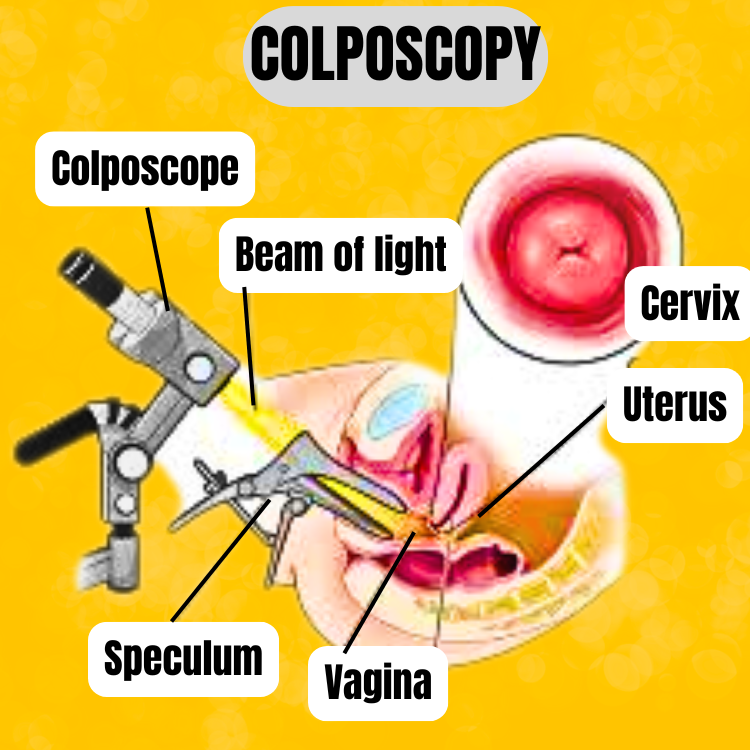
A colposcopy is a closer look at your cervix, often recommended after an abnormal Pap smear or positive HPV test. By applying solutions like vinegar and iodine, doctors can highlight abnormal cells, helping to detect precancerous changes early. It’s a quick, minimally uncomfortable procedure that plays a vital role in protecting your cervical health.
One Thing at a Time: The Secret to Finding Calm in Chaos

Feeling overwhelmed? Find your calm by focusing on one thing at a time. Just like the woman meditating by the sea, peace begins when you let go of the chaos and embrace the simplicity of the moment. Believe in your ability to be productive, and watch as balance and clarity follow.
Human Papillomavirus (HPV): A Comprehensive Guide
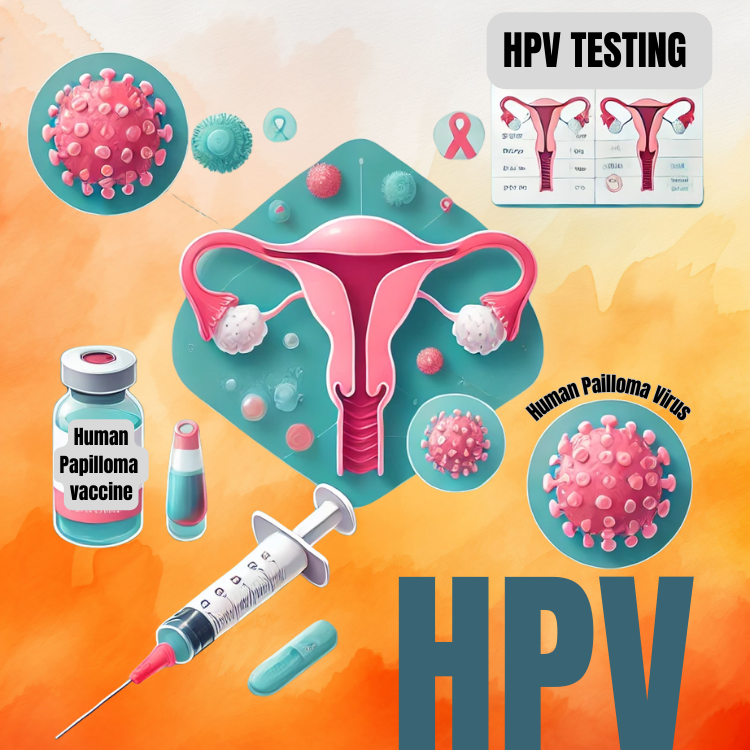
HPV, or Human Papillomavirus, is a common virus with over 200 types, some causing harmless infections and others linked to cancers like cervical and throat cancer. It spreads through skin-to-skin contact, often during sexual activity. While most infections clear on their own, persistent high-risk HPV can lead to serious health problems. Vaccines like Gardasil 9 offer powerful protection against many HPV types, making prevention a key step in reducing its impact.
What Is a Pap Smear? And Why It’s So Important
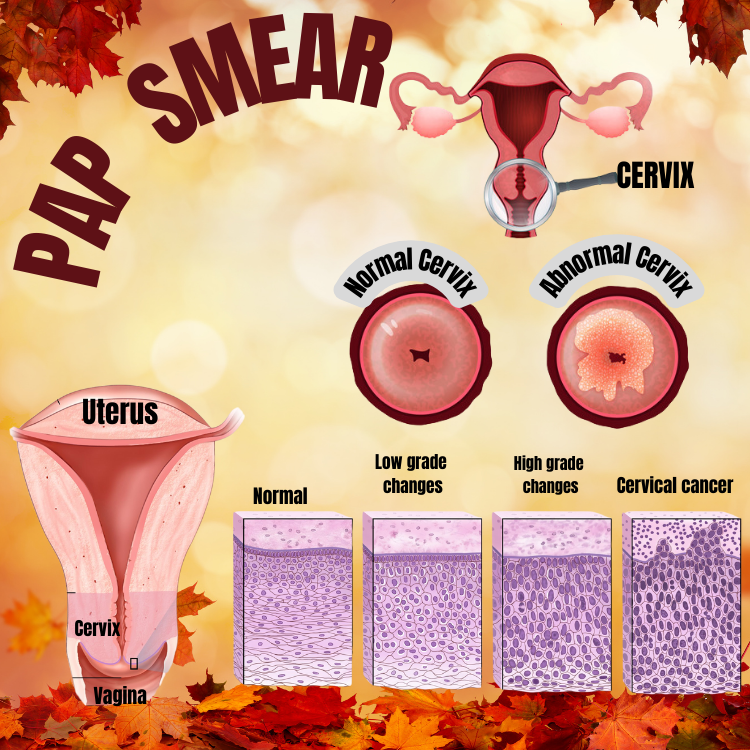
A Pap smear is a simple, quick test that plays a big role in protecting women’s health. By collecting a small sample of cervical cells, it screens for abnormalities that could lead to cervical cancer. It’s a routine test that catches problems early, giving you the chance to stay ahead of any issues and focus on your well-being. Think of it as a small step with a big impact on your health!
Reflections on Mortality: The Legacy We Leave Behind

Chadwick Boseman’s passing reminds us of life’s fragility and the legacy we leave behind. It’s not about how long we live but how we choose to spend our time—bringing joy, standing for something meaningful, and creating a ripple effect that lasts far beyond our years. What will your legacy be?
Kindness: The Superpower That Costs Nothing but Changes Everything

Kindness costs nothing but has the power to change everything. A simple smile, a kind word, or a small gesture can brighten someone’s day and spark a ripple effect of positivity. In a world where you can be anything, choose to be kind—it’s the ultimate superpower.
Why Kitty Litter Can Be a Problem During Pregnancy

Toxoplasmosis is a sneaky infection caused by a parasite often linked to cat litter and undercooked meat. While harmless for most people, it can pose serious risks during pregnancy, including harm to the baby’s brain or eyes. The good news? Simple precautions like avoiding litter box duty and cooking meat thoroughly can keep you and your baby safe.”
Labor: The Big Day Explained

Labor is the incredible process your body goes through to bring your baby into the world. From early contractions to the final push, it’s a journey of strength, patience, and teamwork. Knowing what to expect at each stage can turn nervousness into confidence as you prepare for one of life’s most unforgettable moments.
Why Does Menstrual Blood Bleach Your Underwear? The Science Behind the Mystery

Ever noticed your period leaving bleach-like stains on your underwear? It’s not magic—it’s science! Your body’s natural hydrogen peroxide and pH balance are behind this quirky phenomenon. Let’s uncover the mystery of your self-cleaning superpower.
The Normal Menstrual Cycle: Your Body’s Monthly Symphony
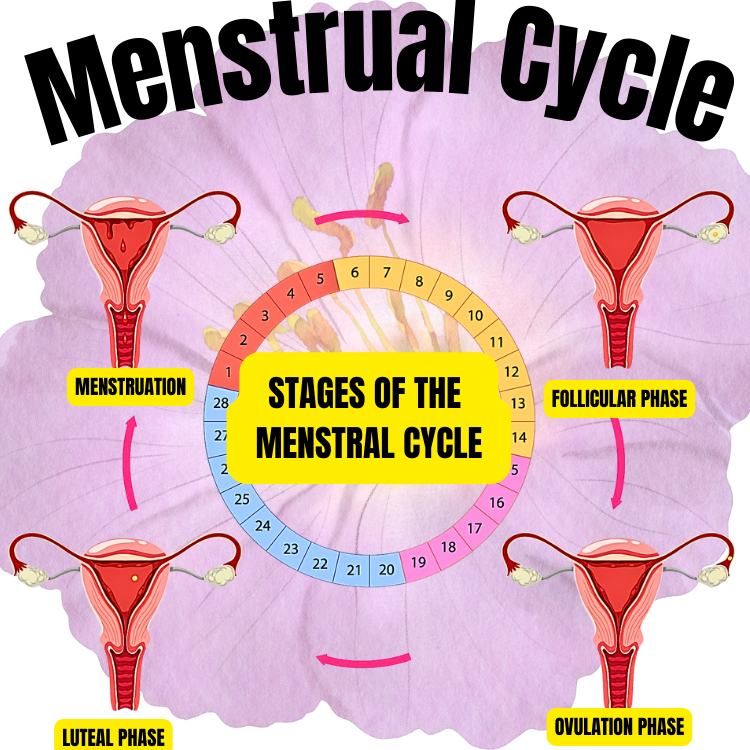
The menstrual cycle is your body’s way of hitting the refresh button each month. It’s a beautifully orchestrated process where your ovaries and uterus team up to prepare for a possible pregnancy. From the shedding of the uterine lining (hello, period!) to the grand release of an egg (ovulation’s big moment), it’s all about timing, hormones, and balance. Whether it’s the rise of estrogen or the calming effects of progesterone, your cycle is like a secret rhythm that keeps things running smoothly—classy, complex, and all yours.
Ovarian Cysts: What’s Going on Down There?
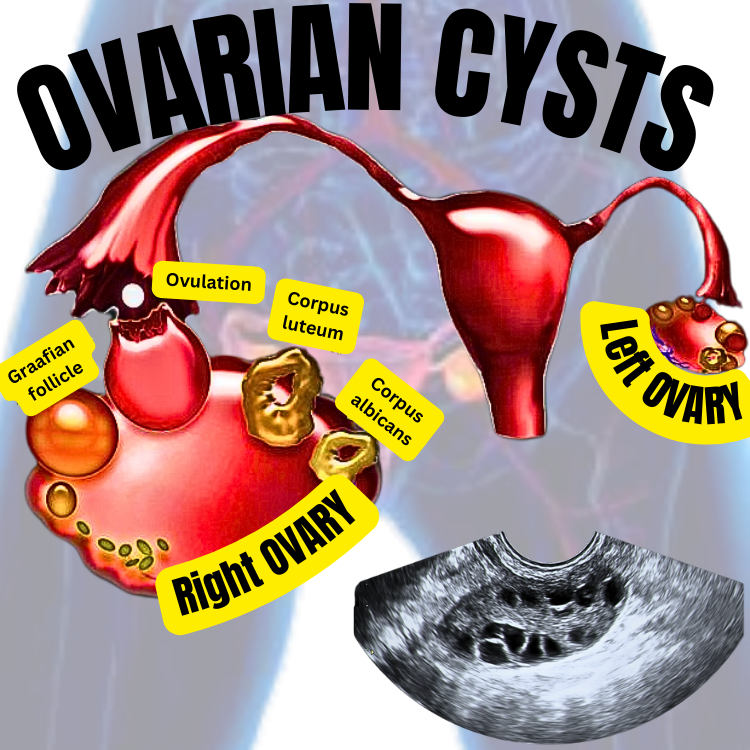
Ovarian cysts are fluid-filled sacs that form on or inside the ovaries. Most are harmless and part of the normal menstrual cycle, like functional cysts that come and go on their own. Others, like dermoid cysts (filled with hair or teeth!) or endometriomas (linked to endometriosis), can cause symptoms like pelvic pain or bloating. While most cysts are benign, a small percentage can signal something more serious, like ovarian cancer. Regular check-ups and monitoring can keep your ovaries happy and healthy!
Menopause: Everything You Need to Know

Menopause is a natural stage of life marking the end of a woman’s reproductive years. It occurs when the ovaries stop releasing eggs and producing key hormones like estrogen and progesterone, leading to the cessation of menstrual periods. While menopause is often accompanied by symptoms such as hot flashes, sleep disturbances, mood changes, and physical transformations, it is not an illness but a biological transition. With the right knowledge and care, women can navigate this phase with confidence, embracing it as a time of growth and renewal.
Understanding Abnormal Uterine Bleeding (AUB):
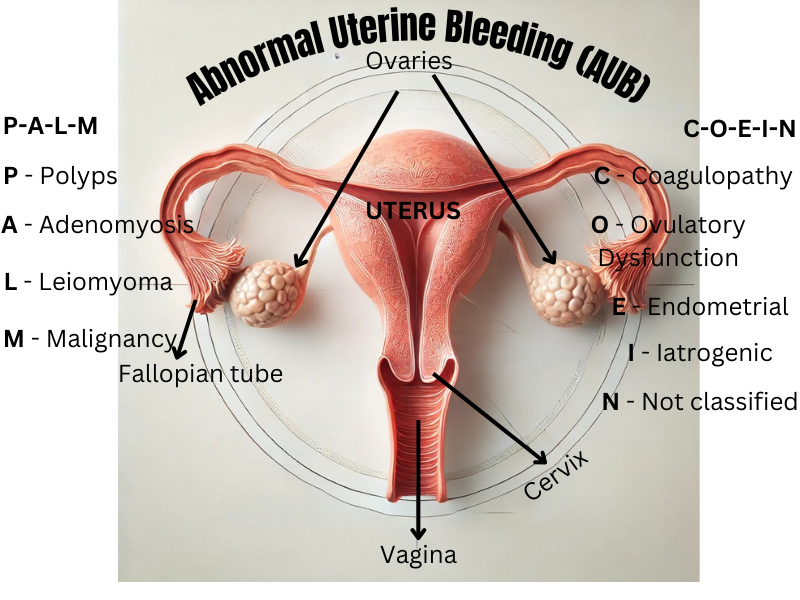
Abnormal uterine bleeding (AUB) refers to irregularities in menstrual bleeding, such as heavy or prolonged periods, bleeding between cycles, or bleeding after menopause. It can arise from various causes, including structural issues like fibroids or polyps and non-structural factors like hormonal imbalances or bleeding disorders. Proper evaluation through medical history, diagnostic tests, and imaging is essential to determine the underlying cause and ensure effective treatment tailored to the individual’s needs.
Understanding Preeclampsia: A Comprehensive Guide

Preeclampsia is a serious pregnancy complication marked by high blood pressure and signs of organ dysfunction, often in the liver or kidneys. It typically develops after 20 weeks of pregnancy or postpartum and poses risks to both the mother and baby. Early recognition of symptoms like severe headaches, swelling, and vision changes, along with timely medical management, is crucial. Understanding risk factors, preventive measures like low-dose aspirin, and postpartum care can improve outcomes and reduce long-term health risks.
Salt Lake City Arrival- Reflections on Growth and Change

Change is painful, but brings great rewards. Growth us uncomfortable.
Discovering Ka’Chava: A Great Option for Healthy Nutrition on Busy Days

Struggling to find something quick, healthy, and actually satisfying during a busy workday? I was too—until I discovered Ka’Chava. This plant-based meal replacement shake has been a game-changer, bridging the gap between convenience and nutrition. Packed with superfoods, protein, and fiber, it keeps me full for hours without the carb crashes. While it’s not the cheapest option, its quality and versatility make it worth the investment. Paired with regular exercise and a balanced diet, it’s even helped me stay on track with weight loss. Curious to try? Check out my recipe for a delicious twist!
Metformin: The Unsung Hero of Metabolism

If your doctor has ever mentioned Metformin, you might be curious about this widely used medication. Metformin, a trusted treatment since the 1950s, is commonly prescribed for managing Type 2 Diabetes, Polycystic Ovary Syndrome (PCOS), and even prediabetes. It works by improving insulin sensitivity, reducing sugar production in the liver, and slowing sugar absorption in the gut. Affordable and effective, Metformin has helped millions lead healthier lives. However, it’s important to understand its uses, side effects, and dosage guidelines to make the most of this essential medication.
Understanding PCOS: A Comprehensive Guide

Polycystic Ovary Syndrome (PCOS) affects millions worldwide, often causing hormonal imbalances, irregular periods, and other symptoms. While it can be challenging, understanding its causes, symptoms, and management options can empower you to take control. This guide explores everything from lifestyle changes and treatments to long-term effects, helping you navigate PCOS with confidence.
The GBS Test: Everything You Didn’t Know You Needed to Know

The GBS test might not be the most glamorous part of pregnancy, but it’s essential for protecting your baby. This quick and painless test checks for Group B Streptococcus, a common bacteria that can pose risks during delivery. Learn why it’s done at 36-37 weeks, how it’s treated, and what to expect during labor if you test positive. With simple precautions like antibiotics, you’re set for a safe and healthy start for your little one.
Understanding Rhogam and Its Role in Pregnancy

Rhogam is a vital tool in pregnancy care for Rh-negative mothers, protecting against Rh incompatibility and ensuring future pregnancies remain healthy. Learn how this small precaution can make a big difference for you and your baby.
Understanding the Glucose Test in Pregnancy

What You Need to Know About the Glucose Test in Pregnancy
The glucose test is a key milestone during pregnancy, helping to screen for gestational diabetes—a condition where blood sugar levels become too high. Typically performed between 24-28 weeks, this test involves drinking a sugary solution or approved alternatives (like 28 jelly beans!) and having your blood drawn to measure your body’s response.
While not the most exciting part of pregnancy, the test plays a vital role in ensuring both your health and your baby’s. Failing the initial test doesn’t always mean you have gestational diabetes, but it may lead to further testing.
Curious about gestational diabetes and its management? Check out my post here: Understanding Gestational Diabetes.
From glucose drinks to jelly beans, this test is all about keeping you and your baby safe. Let your healthcare provider guide you through the best options!
Welcoming a New Baby: A Sibling’s Perspective

Welcoming a New Baby: Helping Siblings Adjust
Bringing a new baby home is exciting but can be a big change for older siblings. While they may feel proud to be a big brother or sister, they might also experience moments of jealousy or confusion.
Including them in daily activities like helping with diaper changes, reading to the baby, or choosing baby outfits can foster a sense of importance and pride. Reading books about becoming a sibling, like A New Baby for Our Family, can also help them prepare emotionally and feel reassured.
Companion resources, such as an activity book, coloring book, and the Little Legends Journal, provide creative outlets to help children adjust and feel included. With love and support, siblings can embrace their new role and build a lifelong bond with the baby.
(As an Amazon Affiliate, I may earn a small commission from qualifying purchases.)
Understanding Ovulation Prediction Kits: Your Guide to Tracking Fertility

Understanding Ovulation Prediction Kits
If you’re trying to conceive or simply want to better understand your menstrual cycle, ovulation prediction kits (OPKs) can be a valuable tool. These easy-to-use kits detect the surge of luteinizing hormone (LH) in your urine, signaling ovulation is near. Some advanced kits even track additional hormones like estrogen for greater accuracy.
By identifying your most fertile days, OPKs take the guesswork out of fertility tracking, making them particularly useful for people with irregular cycles or those looking to maximize their chances of conception.
Curious to learn more about ovulation and how OPKs work? Check out my detailed post: What is Ovulation?
If you’re ready to explore the best options, I’ve compiled a list of 10 top-rated ovulation kits available on Amazon, trusted for their accuracy, ease of use, and affordability. With the right OPK, you’ll gain valuable insights into your body and take a confident step on your fertility journey.
What is Ovulation?
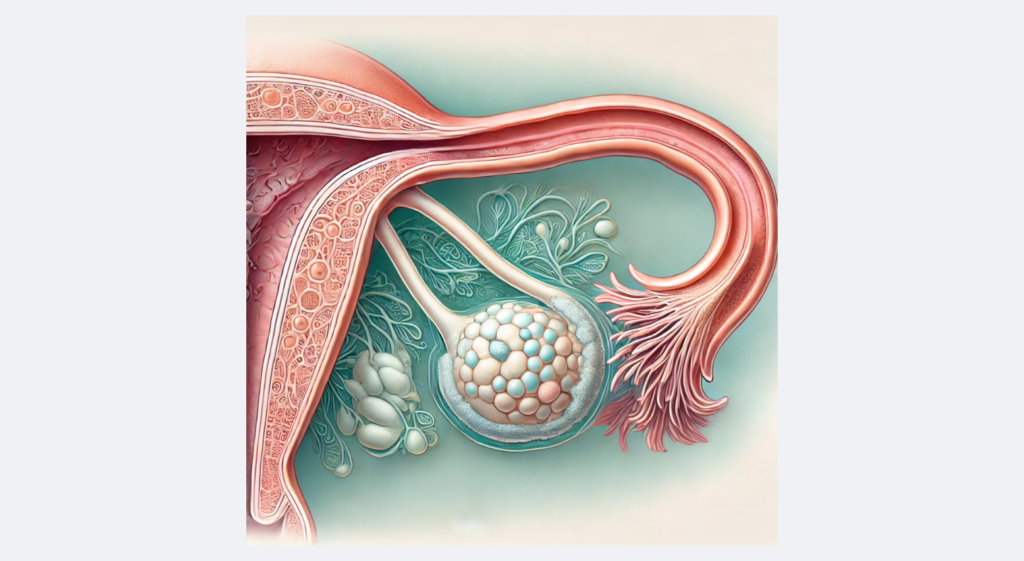
The Monthly Marvel: Ovulation 101
Imagine your body as a finely tuned orchestra, with each part contributing to a beautiful symphony. Among these, ovulation stands out as one of the star performers. But what exactly is ovulation, and why does it matter?
Ovulation is like a monthly treasure hunt—except instead of gold coins, your body releases a tiny egg from one of the ovaries. Smaller than a grain of sand, this egg plays a crucial role in human reproduction.
It all begins in the brain, the body’s command center. The hypothalamus sends signals to the pituitary gland, which releases two important hormones: follicle-stimulating hormone (FSH) and luteinizing hormone (LH). These hormones travel to the ovaries, where they encourage the growth of follicles—tiny sacs, each holding an immature egg.
Eventually, one follicle takes the lead, and a surge of LH causes it to release the mature egg. This is ovulation, a fascinating biological process that happens once a month, typically 14 days before the next period.
Why is ovulation important? Besides being essential for reproduction, regular ovulation is a sign of overall health and hormonal balance. It’s one of the many remarkable processes your body performs every day!
The Tdap Vaccine in Pregnancy: A Jab Worth the Buzz

The Tdap Vaccine: A Pregnancy Power-Up
What is Tdap?
Tdap stands for Tetanus, Diphtheria, and Pertussis (aka whooping cough). It’s a combination vaccine designed to protect against:
Tetanus: Prevents painful muscle stiffness (“lockjaw”).
Diphtheria: Stops a rare but serious bacterial infection that can block airways.
Pertussis: Protects against whooping cough, a severe respiratory illness dangerous for newborns.
Why During Pregnancy?
Babies can’t get their own pertussis vaccine until 2 months old, leaving them vulnerable. Getting Tdap during pregnancy (between 27-36 weeks) passes antibodies to your baby, acting like a biological shield in their first weeks of life.
Benefits vs. Risks
Benefits: Reduces infant pertussis hospitalizations by 91%, protects mom, and builds herd immunity.
Risks: Mild side effects like soreness or fever; severe allergic reactions are extremely rare.
How It’s Administered
The Tdap is given intramuscularly (IM)—a simple shot in the arm. IM injections ensure faster absorption and fewer localized reactions compared to subcutaneous (SC) shots.
Pro Tip: Ensure family members are up-to-date on their Tdap vaccines, creating a cocoon of care around your baby. Think of it as arming your little one with superpowers before they can defend themselves!
Antigens and Antibodies: A Cellular Tale of Intrigue and Defense

Your Body’s Fortress and Your Baby’s Cocoon of Care
Imagine your body as a fortress guarded by billions of tiny soldiers—antigens and antibodies. Antigens are like flag posts on cells, identifying friend or foe. If an invader sneaks in, your immune system raises the alarm and sends in antibodies, custom-built soldiers that neutralize the threat with precision.
Vaccines, like Tdap, train your immune system by introducing harmless pieces of invaders, allowing it to practice defense without real danger. Your body builds antibodies and even memory cells, ensuring you’re ready for future attacks.
Now think of your newborn as a delicate caterpillar needing protection. The cocoon of care forms when you, family, and caregivers get vaccinated. Your shot during pregnancy passes protective antibodies to your baby, while others’ vaccinations create a bubble of safety, reducing germ exposure. Together, it’s a germ-fighting team effort to keep your little one healthy!
The ACOG (American College of Obstetricians and Gynecologists)

The American College of Obstetricians and Gynecologists (ACOG) provides evidence-based guidelines to help OB/GYNs deliver safe and effective care. However, they don’t dictate medical decisions—ACOG recognizes that physicians must tailor care to each patient on a case-by-case basis.
Think of ACOG as a GPS: it offers the best route based on evidence, but the physician is the driver, adjusting for unique patient needs. Their guidelines are a framework, not rigid rules, ensuring flexibility to deliver personalized, high-quality care.
hCG in Pregnancy: Your Body’s Amazing Pregnancy Hormone

hCG: The Pregnancy Hormone That Tells an Amazing Story.
Human chorionic gonadotropin (hCG) is often called the “pregnancy hormone,” and for a good reason—it’s one of the earliest and most vital signs of pregnancy. Produced by the placenta shortly after implantation, hCG supports the early stages of pregnancy by maintaining the uterine lining, signaling pregnancy to your body, and even influencing some of the classic symptoms like nausea and fatigue. From helping confirm pregnancy with home tests to providing clues about complications like ectopic or molar pregnancies, hCG levels reveal much about your journey. Dive into the fascinating role of hCG and what your levels might be telling you!
The Ultimate Guide to Taking a Pregnancy Test: What You Need to Know

Taking a pregnancy test is often the first step in confirming one of life’s most exciting milestones. Whether you’re eagerly hoping for a positive result or simply seeking peace of mind, understanding how pregnancy tests work, when to take them, and what your results mean can make the process less stressful. This ultimate guide breaks down the science of hCG detection, clarifies how pregnancy is calculated (yes, 4 weeks pregnant means 2 weeks post-conception!), and offers practical advice on next steps after testing. Plus, explore top-rated pregnancy tests on Amazon to help you get accurate, reliable results from the comfort of your home!
Belly Bands for Pregnancy: Comfort & Support (10 great options on Amazon)

Pregnancy is a beautiful experience, but as your baby bump grows, it can bring some unexpected challenges. Enter the belly band—a simple yet genius solution designed to provide support and comfort during this exciting time. Whether you’re dealing with back pain, round ligament discomfort, or just need a little extra stability, belly bands can make […]
10 Great Pregnancy Pillows on Amazon: A Comfort Guide for Moms-to-Be

Pregnancy is a beautiful journey, but let’s face it—it’s not always the most comfortable. Between growing bumps, aching backs, and restless nights, finding the right support is key. That’s where pregnancy pillows come in! These magical cushions are designed to help you sleep better, reduce pressure on your body, and provide ultimate comfort throughout your […]
Holistic Ways to Manage Nausea and Vomiting in Pregnancy

(As an Amazon Associate, I earn from qualifying purchases. This means I may receive a commission for purchases made through links on this site, at no additional cost to you). Ah, pregnancy—the beautiful journey of growing life. But let’s be real: morning sickness (a.k.a. nausea and vomiting of pregnancy, or NVP) can make those early […]
Understanding Gestational Diabetes

Imagine being diagnosed with diabetes during pregnancy, only for it to vanish after giving birth—sounds wild, right? That’s gestational diabetes (GDM) for you! This condition affects many women, including some of Hollywood’s biggest stars. From Salma Hayek to Mariah Carey, these celebrities have faced GDM with strength and resilience. But it’s not just about the challenges; it’s about managing your health and ensuring a bright future for both you and your baby. Curious to learn more about GDM, its symptoms, and how to navigate this journey? Dive in and discover the essential insights you need!
What is an Ectopic Pregnancy: Symptoms, Risks, and Treatment Options

An ectopic pregnancy is a serious condition that occurs when a fertilized egg implants outside the uterus, often in the fallopian tube. This can lead to life-threatening complications if not treated promptly. Early symptoms may mimic a typical pregnancy, making awareness crucial. If you experience unusual pain, bleeding, or dizziness, seeking immediate medical attention is vital. Understanding the risks, symptoms, and treatment options can empower you to take control of your reproductive health. Discover how to recognize the signs and what steps to take to ensure your safety and well-being during this challenging time.
Montana ObGyn: Your Partner in Pregnancy

Montana ObGyn: Your Partner in Pregnancy Welcome to Montana Ob Gyn! As a passionate ObGyn working in Sidney, Montana, my goal is to support women and families through one of the most exciting (and sometimes nerve-wracking) journeys of their lives—pregnancy and welcoming a new baby. Each pregnancy is indeed unique, whether you’re a first-time mom […]
“My Body, My Choice”: Respecting Every Woman’s Right to Decide Her Path Through Pregnancy

Every woman’s body is unique, and so is her journey through pregnancy. The right to make informed choices about one’s own body is fundamental to fostering an empowering experience. From birth settings to pain management options, each decision reflects a woman’s values and circumstances. As healthcare providers, we must support and respect these choices, creating a safe space for open dialogue. Advocating for women’s autonomy not only empowers individuals but strengthens families and communities. Discover why respecting every woman’s right to choose is essential for a healthier, more compassionate world. Feel empowered to make the right decision for you!
Understanding Morning Sickness: Causes and Remedies

Morning sickness, or more accurately, nausea and vomiting during pregnancy, is a common and normal part of the journey for many moms-to-be. Despite its name, it doesn’t just strike in the morning—it can happen anytime, day or night. This queasy experience usually starts around week 6 of pregnancy and often eases by weeks 12–16. Caused by hormonal changes, it’s a sign your body is adapting to nurture new life. While it can be frustrating, there are ways to manage it—like snacking frequently, sipping ginger tea, and staying hydrated. For more tips and comforting recipes, check out my cookbook Nausea No More: Comforting Bites for Moms-to-Be!
SAFE CONSUMPTION OF COLD CUTS DURING PREGNANCY

Can cold cuts be safely consumed during pregnancy? The short answer is yes—with proper precautions. While cold cuts are a convenient meal option, they carry risks like Listeria contamination. By heating deli meats thoroughly, choosing freshly sliced options, and practicing good hygiene, you can enjoy them safely during pregnancy. For those who prefer alternatives, options like cooked chicken, vegetarian deli meats, or homemade sandwich fillings are nutritious and risk-free. Prioritizing food safety helps protect both mom and baby while keeping your meals delicious and satisfying!
SAFETY OF HONEY DURING PREGNANCY

Can honey be safely consumed during pregnancy? The answer is yes—most pregnant women can enjoy honey as a natural sweetener when consumed in moderation. While honey is safe for adults, including expectant mothers, it’s best to choose pasteurized honey and be mindful of sugar intake. With its soothing properties and potential health benefits, honey can be a delicious addition to teas, snacks, and recipes during pregnancy. As always, consult your healthcare provider if you have specific concerns or conditions like gestational diabetes.
Why Eating Raw or Undercooked Meat is not Advised in Pregnancy

When you’re pregnant, avoiding raw or undercooked meat is one of the smartest choices you can make for your baby’s health. Raw meat can harbor harmful bacteria and parasites like Toxoplasma, Listeria, Salmonella, and E. coli, which pose serious risks during pregnancy. Cooking meat to safe temperatures and avoiding dishes like rare steak or sushi made with raw fish are simple but essential steps to protect you and your baby. With proper precautions, you can enjoy delicious meals while prioritizing safety. Learn more about how to stay healthy and enjoy flavorful alternatives during pregnancy!
The Essential Guide to Pregnancy Nutrition

Pregnancy nutrition doesn’t have to be complicated or overwhelming! Eating for two isn’t about doubling your portions—it’s about making balanced, nutritious choices to support both you and your baby. From protein-packed meals to iron-rich snacks and calcium-filled treats, every bite plays a role in your baby’s development. Whether you’re conquering morning sickness or indulging in a craving, this guide offers witty, practical tips to keep you energized and your baby growing strong. Dive into a colorful, delicious approach to pregnancy nutrition and savor every step of the journey!
The Importance of Hydration During Pregnancy

Hydration is a pregnancy game-changer, supporting both you and your growing baby. From maintaining healthy amniotic fluid levels to easing common pregnancy woes like swelling and constipation, water is your ultimate ally. Aim for 8-10 cups daily, and don’t stress—small, frequent sips count! If plain water isn’t your favorite, try adding fruit slices, sipping herbal teas, or munching on water-rich snacks like watermelon. Staying hydrated not only keeps you energized but also helps reduce risks like preterm labor. So, grab a cute water bottle and make hydration a habit—it’s one of the simplest ways to nurture yourself and your baby!
